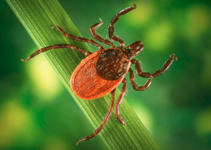Where we run into problems with THC toxicity dogs is not necessarily the THC itself, for which, as you correctly mentioned, there isn't a treatment other than supportive care and monitoring, but in what it is blended with for products like brownies, synthetic cannabinoids, chocolates, or xylitol containing gummies for example. All of these cause additional issues and some of them are very serious.
For the THC toxicity itself, a common clinical sign is loss of bladder control, which is basically unheard of with other toxicities and can be a good clue in. Lethargy, delayed reaction times and sensitivity to sound or touch, and a lot of salivation taken all together are a shoe in. Familiarizing yourself with this is the biggest DIY care you can provide. I don't even make these dogs vomit if they come in, because, due to being lethargic, I have concerns about aspiration of their stomach contents.
For the future and anyone reading this who partakes in the substance itself, here's a PSA from us veterinarians: please please PLEASE be honest and, even better, bring the product itself in with you! We have zero obligation to report the toxicity, or you, to any kind of law enforcement, and it helps your companion get care as fast as possible to give them the best chance. Dog's don't create the urine metabolites that humans do, so we lack any way of definitively testing them other than clinical history and signs.




